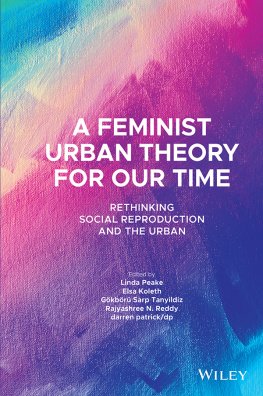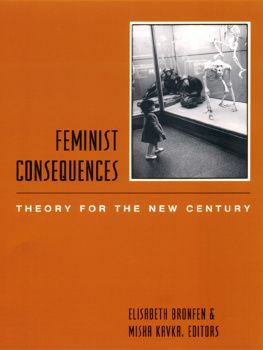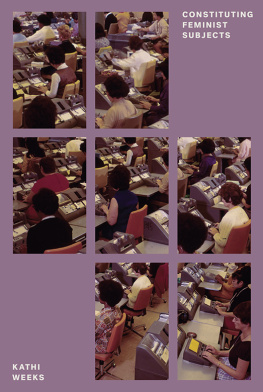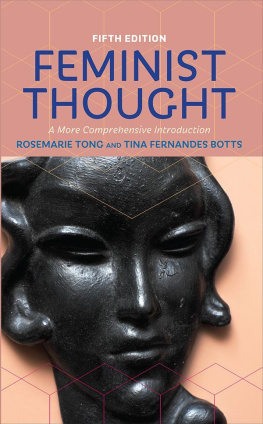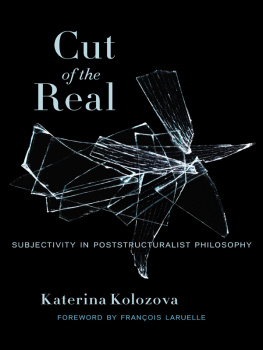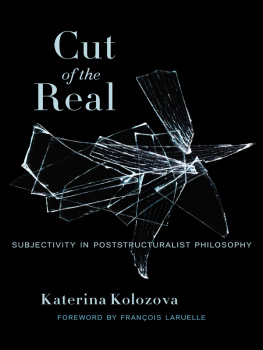Baudrillards Challenge
Jean Baudrillard is a pivotal figure in contemporary cultural theory and the whole field of the social sciences. Without doubt one of the foremost European thinkers of the last fifty years, his work has provoked debate and controversy across a number of disciplines, yet his significance has so far been largely ignored by feminist theorists. Baudrillards Challenge is an attempt to redress this balance, presenting the first systematic feminist reading of Baudrillards work.
Victoria Grace argues that Baudrillards critique of signification, the economy, and the construction of identity offers a vital point of departure for any serious analysis of the problematic of patriarchy in contemporary western societies. Drawing on the full range of Baudrillards writings the author engages in a debate with:
- the work of Luce Irigaray, Judith Butler, and Rosi Braidotti on identity, power, and desire
- the feminist concern with difference as an emancipatory construct
- writings on transgenderism and the performance of gender
- feminist concerns about the objectification of women
Through this critical engagement Grace reveals a number of the limitations of some contemporary feminist theorising around gender and identity, patriarchy and power, and in so doing offers a way forward for contemporary feminist thought.
Baudrillards Challenge will be essential reading for students of feminist theory, sociology, and cultural theory.
Victoria Grace is Senior Lecturer in Feminist Studies and currently serving a term as Dean of Arts at the University of Canterbury at Christchurch.
First published 2000 by Routledge
11 New Fetter Lane, London EC4P 4EE
Simultaneously published in the USA and Canada
by Routledge
29 West 35th Street, New York, NY 10001
Routledge is an imprint of the Taylor & Francis Group
This edition published in the Taylor & Francis e-Library, 2001.
2000 Victoria Grace
All rights reserved. No part of this book may be reprinted or reproduced form or by any electronic, mechanical, or other means, now known or including photocopying and recording, or in any information storage or without permission in writing from the publishers.
British Library Cataloguing in Publication Data
A catalogue record for this book is available from the British Library
Library of Congress Cataloging in Publication Data
Grace, Victoria.
Baudrillards challenge: a feminist reading/Victoria Grace.
p. cm.
Includes bibliographical references and index.
1. Baudrillard, Jean. 2. Feminist theory. I. Title.
HQ1190.G67 2000
305.4201dc21 99059084
ISBN 0-415-18075-9 (hbk)
ISBN 0-415-18076-7 (pbk)
ISBN 0-203-13190-8 Master e-book ISBN
ISBN 0-203-17655-3 (Glassbook Format)
Acknowledgements
In the acknowledgements to their book, The World of the Gift (1992), Jacques Godbout and Alain Caill note how it is customary, particularly in works within the social sciences and humanities, to name the many individuals to whom one is indebted for an idea, a criticism, a comment, some information or material, or emotional support. They draw out the connection between gift-giving and gratitude. In the case of this book, it has been a very different experience from that implied by the custom to which Godbout and Caill refer.
I was first introduced to the ideas and work of Jean Baudrillard by my partner, Louis Arnoux, when we first met in 1987. Louis is French, spent the first twenty-five years of his life in France, and was educated in Marseilles and Paris. I have lived in New Zealand for the most part. Louis has studied Baudrillards work systematically, and read his books in French when first published. When Louis and I met, I was working on my doctorate in sociology, and found our discussions and engagement with Baudrillards work of central importance to my thesis research. Since that time my understanding of Baudrillards work has been inextricably linked with my conversations with Louis. I joined the Department of Feminist Studies at the University of Canterbury in 1993, and by 1995 a project was starting to form in my mind; to write a book on the work of Baudrillard from the perspective of feminist concerns. My gratitude and indebtedness lie wholly with Louis, from whom (and with whom) I have learnt more than I could have imagined. Louis has contributed immeasurably to my ideas on Baudrillard, and especially to the importance of a critique of the economic, which in my own work I have come to see has profound importance for feminism. Louis has also contributed suggestions for French references that I would not have otherwise stumbled across.
I have a research interest in feminist critiques of medicalisation, psychosomatic medicine, and theories of embodiment, and a specific research background in womens experiences of, and medical discourses on, chronic pelvic pain. I could list numerous individuals who have contributed to my work in this area; I feel surrounded by a truly rich and dynamic intellectual world of ideas and challenges in this connection, and have the privilege of working with postgraduate students whose work is inspirational. But in connection with this work on Baudrillard, I have not had these conversations with colleagues. Probably the most exhilarating moment was receiving the comments from Routledge reviewers who had read the proposal and the first chapter. This was the first contact (apart from Louis) with peers who were knowledgeable about Baudrillards work, and as such was one of the most encouraging points in this journey. I am very grateful for their generosity of engagement and enthusiasm. My sincere gratitude also goes to Jean Baudrillard for writing a paragraph in strong support of the book proposal, which accompanied my submission to the publisher.
The one other person I want to acknowledge is my friend and colleague Chris Prentice (Department of English, University of Otago). Although Chris and I had not discussed the work of Baudrillard prior to her reading a complete draft of this book, her reaction to the manuscript made us both realise the extent to which our conversations about our work over the years have played an important role in the way our ideas have evolved. I realise how much Chriss support has encouraged me to continue with this critical stance, especially in the face of feminist discouragement regarding the value of Baudrillards work. I am hugely grateful to Chris for the insightfulness of her comments on the draft, and for reflecting back a reading of the book that appears to see what I am seeing.
I am also grateful to two other colleagues, Patricia Elliot (Wilfrid Laurier University, Ontario) and Rene Heberle (University of Toledo, Ohio), for reading a draft of the manuscript and providing comment and engagement with the work. I am clear that this will not be a book that feminist colleagues will necessarily think sits easily within a feminist theory frame (although I think it should!), and therefore I particularly appreciate the opportunity to learn how this book will trouble many feminist readers. It has been useful to reflect on this in the light of comments received.
The book was written over the summers of 1996 and 1997, then during a sabbatical leave from September 1998 till mid-1999. I am very grateful to the University of Canterbury for this study leave period.


